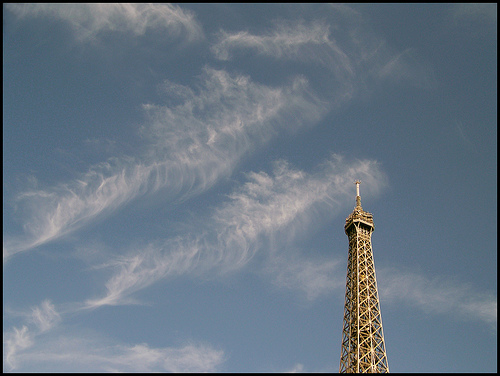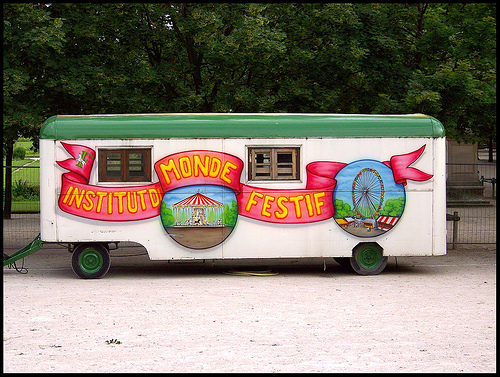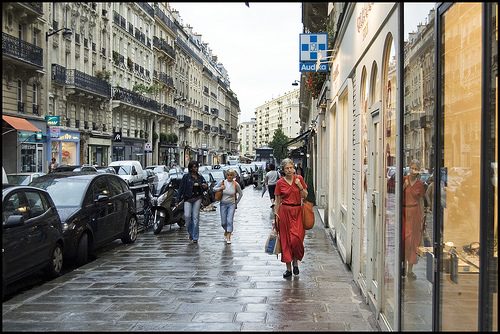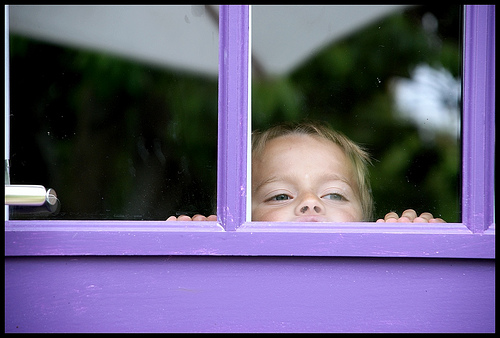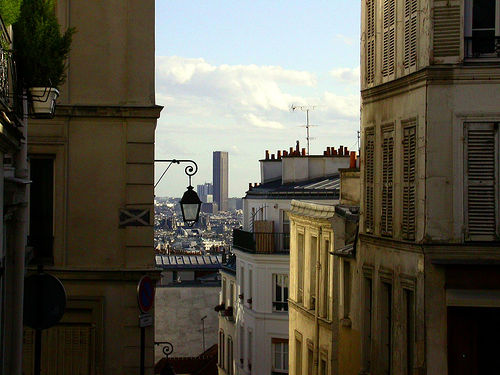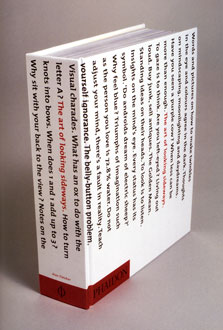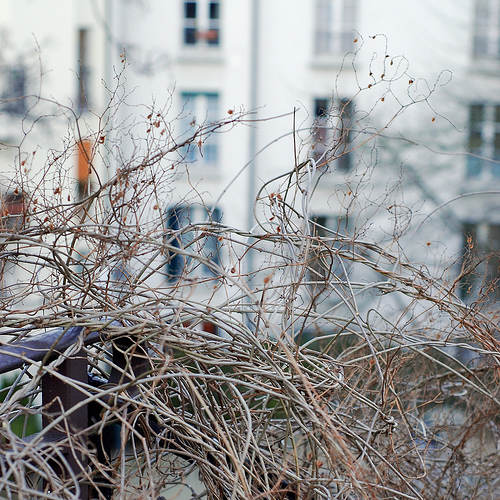Letter from France: Time is on our side
Thursday, February 4th, 2010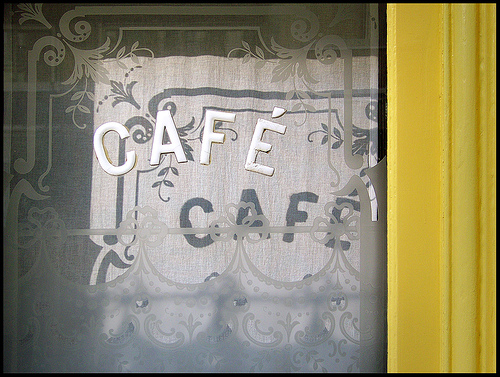
Café, Paris. By Jean Ruaud.
Dear DB’s readers —
The perception of time varies wildly from culture to culture, time is not an absolute, time is culturally variable. In France the perception of time is very different than in Northern European countries or America. Exhibit one: this morning I had a meeting at work at 9.30am. I arrived at the office around 9, said hi to everybody, fixed me coffee and began to check my e-mail. At 9.25 I proceeded to room 415 where the meeting was scheduled. At 9.30 we were two in the room. Another guy was already there and was checking his e-mail on his laptop. We talked leisurely, waiting for the others to show up. People began to come in at 9.35, some were carrying on a conversation begun several minutes before in the corridors or at the coffee machines. At 9.45 everybody was there and the meeting began slowly. Nothing unusual this morning and nobody was shocked. We are living on French time. The meeting was due to end at 12.00 but at 12.30 we were still chatting. I assume that the same situation in Germany, say, or in England or in the US would be unthinkable and considered very rude. Northern or Anglo-saxon cultures are monochronic, time is rigorously scheduled, punctuality is important. In France we are generally much more polychronic, time is more elastic and less strict. Lateness is not an insult (as long as it is not too much, and the notion of “too much” in this case varies in circumstances and contexts). Nevertheless, French people have the tendency to be more punctual than Southern European people (Spanish or Italian). I seldom saw a meeting at work beginning on scheduled time. When you are invited to dinner at a certain hour, to be 30 minutes late is nothing. It is frequent that the TV shows are 10 to 15 minutes out of schedules. But punctuality is sometimes suitable it all depends of a series of different factors, circumstances and personalities, very difficult to guess if you’re not used to the culture. Deadlines have the tendency to be flexible (but not in all circumstances). Generally speaking, French are a little less rigid on time and schedule than Northern Europeans. And things get done nonetheless but at a different pace!
Things are changing these days in France, I noticed. More punctuality is required, the deadlines are much more rigid. Consequence: more stress. We slowly are changing or Mediterranean culture for an Anglo-saxon one.
Later,
Jean
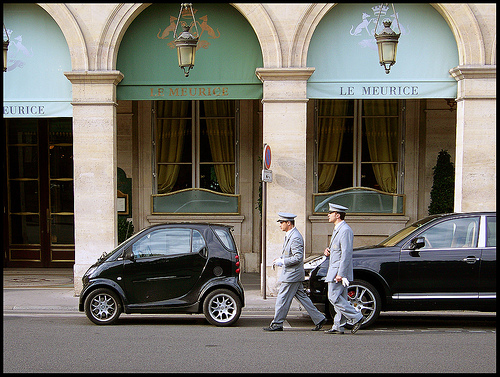
Hôtel Meurice, small car, Paris. By Jean Ruaud.

